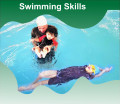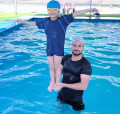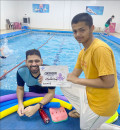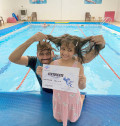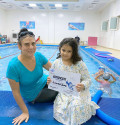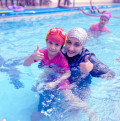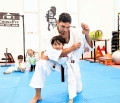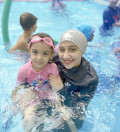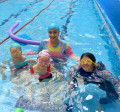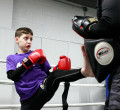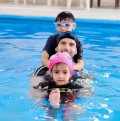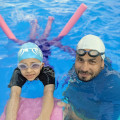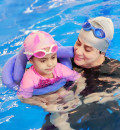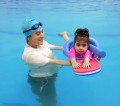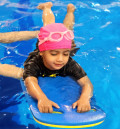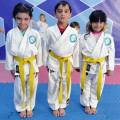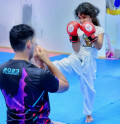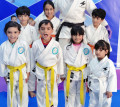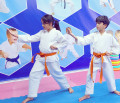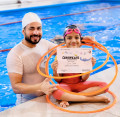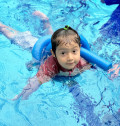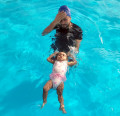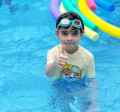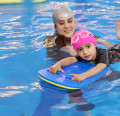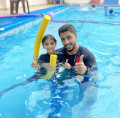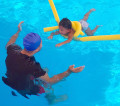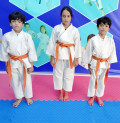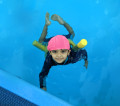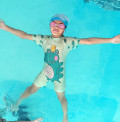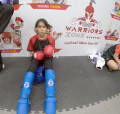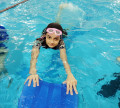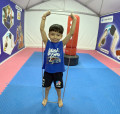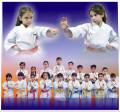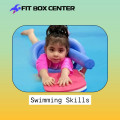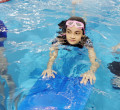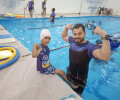
karate offers a unique blend of physical activity, mental focus, and moral lessons
2024-06-03 - karateIntroduction
Karate is more than just a martial art; it's a way of life that instills values and discipline in its practitioners. For kids, karate offers a unique blend of physical activity, mental focus, and moral lessons. The discipline learned through karate can shape a child’s character and set them on a path to success in various aspects of life. Let's dive into the world of kids karate and explore how discipline is at the heart of this ancient practice.
The Benefits of Karate for Kids
Physical Fitness
Karate is an excellent way for kids to stay active. The rigorous training helps improve cardiovascular health, build strength, enhance flexibility, and boost overall fitness. Kids who practice karate regularly are less likely to suffer from obesity and related health issues.
Mental Health
Karate also has significant benefits for mental health. It teaches children how to focus, manage stress, and maintain a positive attitude. The mindfulness involved in practicing karate can help reduce anxiety and improve emotional regulation.
Social Skills Development
Through karate, kids learn to interact with their peers and instructors respectfully. They develop communication skills, learn to work as a team, and build lasting friendships. The sense of community within a dojo (karate school) fosters a supportive environment where kids can thrive.
Definition of Discipline in Karate
Discipline in karate means adhering to a set of rules and practices that promote self-control, respect, and continuous improvement. It’s about following instructions, maintaining focus, and striving for excellence in every action.
Historical Context of Karate Discipline
Karate originated in Okinawa, Japan, and has deep roots in the traditions of the samurai. The principles of Bushido, the samurai code of conduct, are integral to karate, emphasizing honor, respect, and self-discipline.
Core Principles of Karate Discipline
Respect
Respect is fundamental in karate. Practitioners show respect to their instructors, peers, and even their opponents. This principle extends beyond the dojo, teaching kids to respect others in all areas of life.
Self-Control
Karate teaches kids to control their emotions and reactions. This self-control is crucial in preventing conflicts and making thoughtful decisions.
Perseverance
Karate is not easy, and progress often comes with challenges. Perseverance helps kids push through difficulties, whether it's mastering a difficult technique or overcoming personal obstacles.
Integrity
Honesty and moral integrity are essential in karate. Kids learn the importance of being truthful, fair, and upholding strong ethical standards.
Karate Training Structure for Kids
Warm-Up Exercises
A typical karate class starts with warm-up exercises to prepare the body for intense physical activity. These exercises improve flexibility and reduce the risk of injury.
Basic Techniques
Kids begin with basic techniques such as punches, kicks, and blocks. These foundational skills are crucial for building more advanced movements.
Advanced Techniques
As they progress, kids learn more advanced techniques, including combinations and kata (a series of movements and forms). These require greater precision and control.
Cool-Down and Stretching
The class ends with cool-down exercises and stretching to relax the muscles and prevent soreness. This also gives kids a moment to reflect on what they've learned.
Discipline through Karate Etiquette
Bowing
Bowing is a sign of respect and humility. Kids bow when entering and leaving the dojo, at the beginning and end of class, and when interacting with their instructors and peers.
Wearing the Gi (Karate Uniform)
The gi represents the tradition and seriousness of karate. Wearing it correctly shows respect for the art and its practitioners.
Dojo Rules
Dojo rules are strict and must be followed. These include being punctual, maintaining cleanliness, and showing respect at all times.
Role of Instructors in Instilling Discipline
Teaching Methods
Instructors play a crucial role in teaching discipline. They use various methods to instill values, from structured lessons to personal guidance.
Positive Reinforcement
Positive reinforcement encourages good behavior and effort. Instructors praise students for their hard work and improvements, boosting their confidence and motivation.
Setting Examples
Instructors lead by example. Their behavior sets the standard for how students should act, both in and out of the dojo.
Parental Involvement in Karate Discipline
Encouraging Practice at Home
Parents can support their child’s karate training by encouraging regular practice at home. This helps reinforce the skills and discipline learned in class.
Supporting Instructors' Methods
Parents should align with instructors' methods and reinforce the same values and rules at home. Consistency is key to instilling discipline.
Reinforcing Discipline Outside the Dojo
The principles of karate can be applied to everyday life. Parents can help their children practice respect, self-control, and perseverance in all situations.
Challenges in Maintaining Discipline
Dealing with Distractions
Kids are easily distracted. It's essential to create an environment that minimizes distractions during practice.
Consistency in Training
Consistency is vital for maintaining discipline. Regular attendance and practice help kids develop and retain their skills.
Handling Misbehavior
Misbehavior should be addressed promptly and appropriately. Consequences should be fair and aimed at teaching rather than punishing.
Success Stories: Discipline Through Karate
Real-Life Examples
There are countless stories of kids who have transformed their lives through karate. These success stories highlight the profound impact of discipline learned through karate.
Testimonials from Parents and Instructors
Parents and instructors often share testimonials about the positive changes they’ve seen in children who practice karate. These firsthand accounts provide valuable insights into the benefits of karate discipline.
.











































































